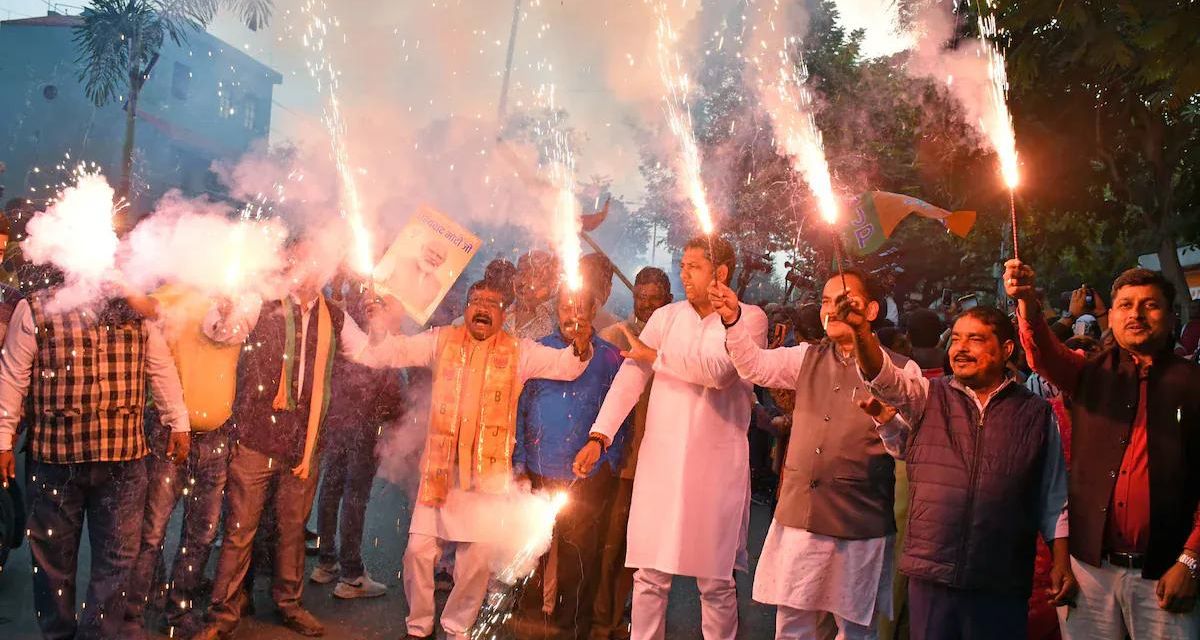New Delhi: In a remarkable turnaround, the Bharatiya Janata Party (BJP) has solidified its dominance in the Indian political landscape following the recent state 2023 Elections. The victory in three key heartland states has not only boosted the party’s morale but also strategically positioned it for the 2024 general elections. Now in control of 12 states, the BJP governs over 41% of India’s population, a figure that rises to over 50% when considering alliance-led states. This widespread influence is anticipated to play a pivotal role in the upcoming 2024 general elections, where the BJP aims for a historic third consecutive term.
Prime Minister Narendra Modi, addressing party workers, highlighted the significance of this victory. “The mandate reflects the public’s intolerance towards corruption, appeasement, and dynastic politics,” PM Modi asserted, implying a direct link between the recent wins and the party’s prospects in 2024.
The BJP’s victory is particularly noteworthy in Rajasthan and Chhattisgarh, where it has successfully dislodged the Congress party. This expansion not only signifies the party’s growing influence but also showcases the effectiveness of its election machinery and strategic adaptability.
In stark contrast, the Congress party faces a challenging road ahead. Now governing only three states – Karnataka, Telangana, and Himachal Pradesh – which constitute a mere 8.51% of India’s population, the party’s influence has visibly diminished. Even with its alliances in Bihar and Jharkhand, Congress’s sway over the Indian electorate is limited to 19.84%.
The recent elections underscore the BJP’s stronghold in the northern regions, an area where it has traditionally enjoyed robust support. The party’s ability to sweep states like Madhya Pradesh and Chhattisgarh, despite earlier skepticism, is a testament to its formidable election strategy and the adeptness of its leadership.
On the other hand, the Congress’s loss of Rajasthan and the setback in Chhattisgarh are expected to significantly weaken its position within the INDIA alliance. The results have not only exposed the party’s waning grip on the northern states but have also sparked criticism from alliance partners. The Trinamool Congress, ruling in Bengal, has urged the Congress to abandon its “zamindari mentality” and learn from the experiences of leaders like Mamata Banerjee. Similarly, senior Janata Dal-United leader KC Tyagi remarked, “The Congress needs to overcome its current syndrome to effectively compete with the BJP.”
As India inches closer to the 2024 general elections, the changing political landscape, marked by BJP’s ascendancy and Congress’s struggles, is set to shape the future of Indian politics. The outcome of these elections not only reflects the current political sentiment but also foreshadows the dynamics of the much-anticipated 2024 electoral battle.

